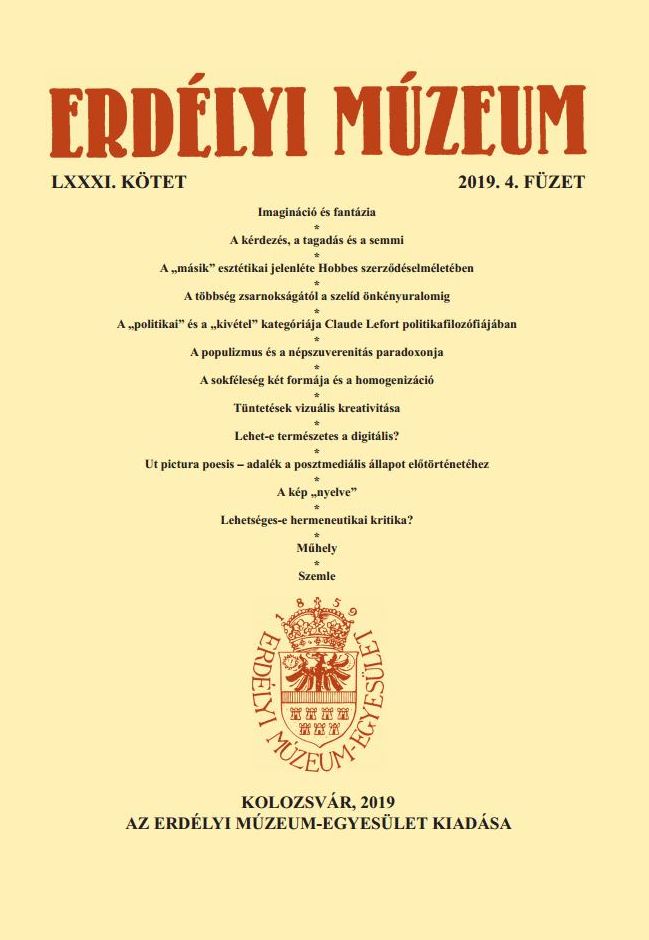Lehetséges-e hermeneutikai kritika?
Is Hermeneutic Criticism Possible?
Author(s): Károly VeressSubject(s): Epistemology, Philosophy of Language, Hermeneutics
Published by: Erdélyi Múzeum-Egyesület
Keywords: transcendental criticism; ideological criticism; philosophical hermeneutics; hermeneutical reflection; hermeneutic criticism
Summary/Abstract: The way in which we see today the essence of critical thinking and its impact on our communication practice is largely related to the legacy of the philosophical practice which, in various eras of the European philosophical tradition, repeatedly focused attention upon the issue of criticism, not only as a theoretical and methodological problem, but also as an essential element of practical action and social practice. The philosophical hermeneutics of H.-G. Gadamer is sometimes seen, in a prejudiced way, as being external to critical thinking in its role in understanding prejudices and tradition. However, the hermeneutic investigation of understanding is motivated precisely by the question of the measure in which we ourselves are prisoners of the misbeliefs of our own age, tradition, and personal experience. Based on these considerations, I confront the legacy of hermeneutical criticism, on the one hand, with the Kantian attitude of transcendental criticism which relates the investigated phenomena back to their conditions of possibility and to their limits, and on the other hand, to the attitude of ideological criticism established and conducted as a social practice by the representatives of the Frankfurt School. In my study I consider it sufficient to raise some relevant questions regarding the relationship of philosophical hermeneutics to criticism. What are the consequences of the hermeneutical approach for the essence and practice of criticism? How can hermeneutical reflection contribute to the widening of the horizon of critical thinking toward self-reflexivity? According to my hypothesis, hermeneutical criticism even offers a surplus compared to the critical attitude of the Enlightenment, as it also includes its own critical illusions in the scope of its (critical) reflection, thus also tracing the boundaries of potential hermeneutical criticism.
Journal: Erdélyi Múzeum
- Issue Year: LXXXI/2019
- Issue No: 4
- Page Range: 106-141
- Page Count: 36
- Language: Hungarian

